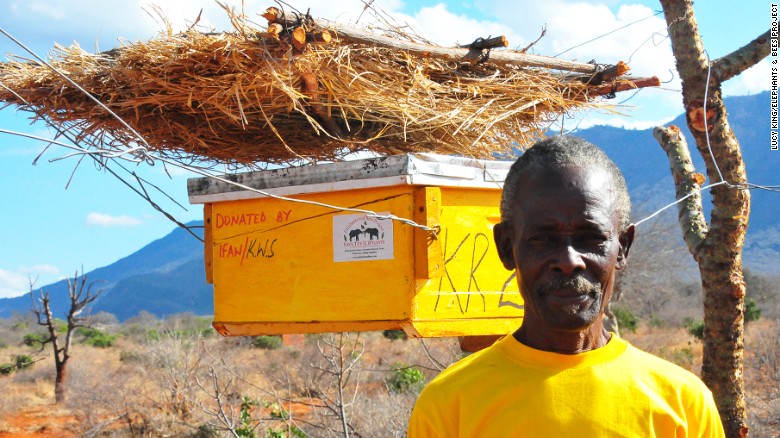prasad1
Active member

Elephants are a big issue for farmers in parts of Africa -- but whether they want to or not, the two are going to have to learn to live together.
A population boom on the continent calls for an increase in resources, and farmers are expanding to accommodate mouths to feed. Occasionally farmers have settled on natural migration corridors for African elephants, giving birth to a fractious relationship.
But an environmentalist has come up with an ingenious solution that might just save both parties: the African honeybee.Founded on the doctoral research of Oxford DPhil Lucy King, the Elephants and Bees Project, part of Save the Elephants, utilizes the knowledge that the world's largest land animal is extremely averse to bees. They have good reason to, argues King.Further evidence collated by King proved elephants "will avoid live beehives at all costs." In fact, she found 94% of elephants in her study moved away from the source of bee sounds within 80 seconds.
"A beehive fence is made up of interlinked beehives and 'dummy' beehives hung 10 meters (33 feet) apart and interlinked with a plain piece of fencing wire that, if disturbed, causes the whole fence to swing and release the bees," King explains.
She describes the bees as "natural electricity" and an extremely cost-effective solution when compared to the charged wire alternative. About 12 to 15 hives can surround about 1.5 to 2 acres of farmland, with King reporting an 80% success rate.

A beenhive fence with farmer Karakara.
In this instance, elephants' long memories serves farmers well.
"Elephants can identify bees by sound alone, indicating that they may associate the sound with a negative historic event," says King. In return "elephants emit a low frequency, infrasonic rumble in response to disturbed bees sounds that warns other elephants in the area to retreat."
http://www.cnn.com/2016/08/12/africa/elephants-and-bees-project-africa/index.html
